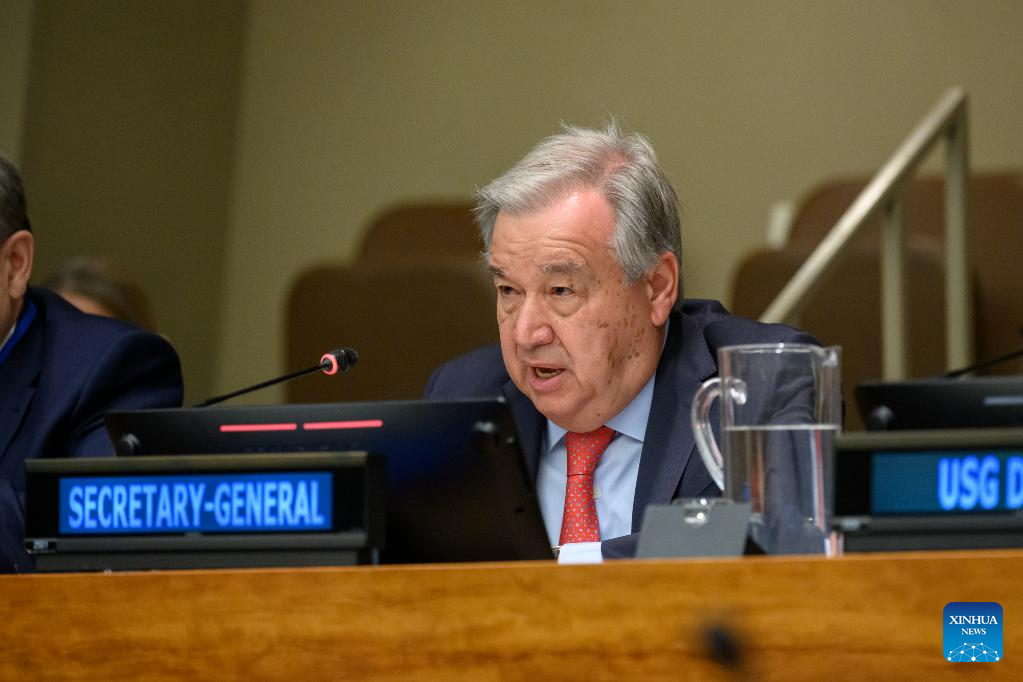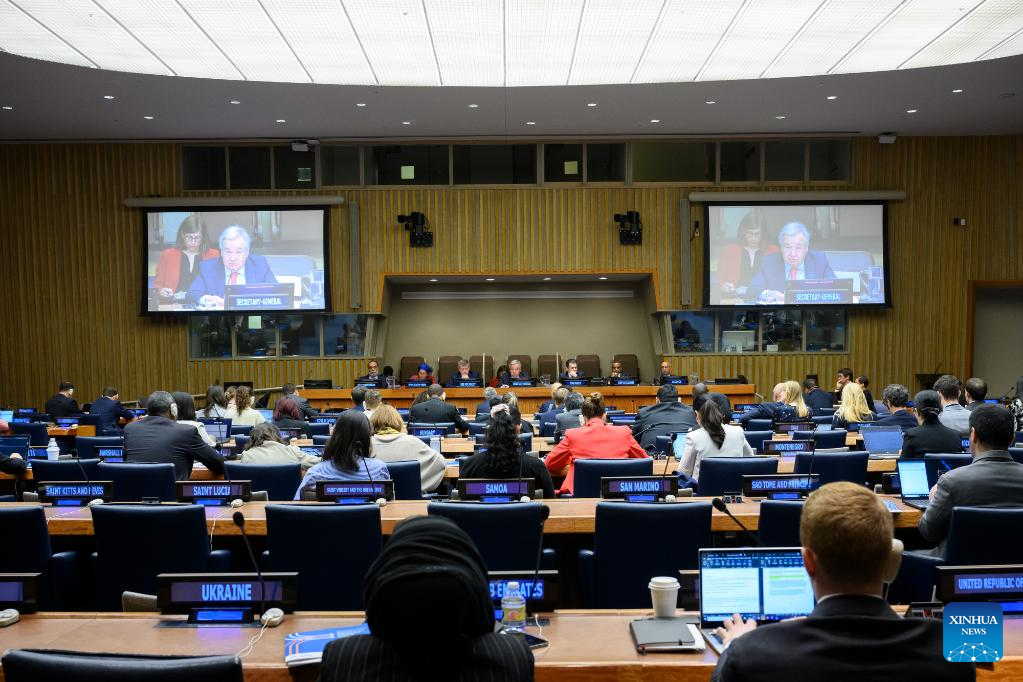
UN Secretary-General Antonio Guterres speaks at the launch of three policy briefs under Our Common Agenda at the UN headquarters in New York, on June 5, 2023. Guterres on Monday called for structural reforms of the international financial architecture in addition to immediate measures to relieve the burden on developing and emerging economies. (Loey Felipe/UN Photo/Handout via Xinhua)
UNITED NATIONS, June 5 (Xinhua) -- UN Secretary-General Antonio Guterres on Monday called for structural reforms of the international financial architecture in addition to immediate measures to relieve the burden on developing and emerging economies.
Guterres made the appeal in remarks at the launch of three policy briefs under Our Common Agenda, including a policy brief on reforms of the international financial architecture.
The Bretton Woods system was established in 1945, when many of today's developing and emerging economies were under colonial rule. It is supposed to serve the world but does not represent the world, he told UN member states.
The UN chief said the COVID-19 pandemic and its aftermath were a stress test for that system, but it largely failed and did not fulfill its core mandate as a financial global safety net. It did not provide enough of the financing needed to support a recovery in developing countries, many of which are now in the throes of a deep financial crisis.
Fifty-two developing countries are in, or near, debt distress, while debt relief is at a standstill. Inflation and rising interest rates are adding to the unsustainable financial pressure on developing countries. Some governments are being forced to choose between making debt repayments or defaulting in order to pay public sector workers -- possibly ruining their credit rating for years to come. Africa now spends more on debt service costs than on health care, he noted.
In the short term, the international community needs to take urgent steps under current arrangements to relieve the burden on developing and emerging economies, said Guterres. "But beyond emergency measures, we need a structural response. The international community must reform the international financial architecture to make it resilient, equitable, and accessible to all."
The policy brief on reforms of the international financial architecture sets out ambitious, concrete proposals in six areas to address historic injustices and systemic bias: global economic governance, debt relief and the cost of sovereign borrowing, international public finance, the global financial safety net, addressing short-termism in capital markets and sustainable finance, and a global tax architecture.
The brief proposes strengthening the voice and representation of developing countries on the boards of the World Bank and the International Monetary Fund (IMF); proposes reforms to IMF quotas, which should be delinked from access to resources; suggests changes to IMF voting rights and decision-making rules; and proposes a representative apex body overseeing the entire system, to enhance its coherence and align its priorities with the 2030 Agenda.
The brief proposes revamping the role and use of Special Drawing Rights (SDRs), essentially, the IMF's way of creating liquidity in a crisis, said Guterres.
The allocation of SDRs issued during the pandemic was grossly unfair and redistribution so far has been minimal. The Group fo Seven most industrialized countries, with a population of 772 million people, received 280 billion U.S. dollars in SDRs. The least developed countries, with a population of 1.1 billion people, were allocated just over 8 billion dollars, he noted.
This was done according to the rules. But there is something morally wrong with the rules that established this kind of procedure. The policy brief proposes that in the future, this injustice should be corrected, he said.
The brief proposes the massive scaling up of development and climate financing, in part by changing the business model of multilateral development banks and transforming their approach to risk, to massively leverage private finance at reasonable cost to developing countries, he added.
Overall, the proposals in the brief are aimed at moving away from a system that benefits the rich and prioritizes short-term gains, toward one that is equitable, and invests up-front in the Sustainable Development Goals, climate action, and future generations, said Guterres, who also presented policy briefs on moving beyond gross domestic product and on a Global Digital Compact. ■

UN Secretary-General Antonio Guterres (on screens) speaks at the launch of three policy briefs under Our Common Agenda at the UN headquarters in New York, on June 5, 2023. Guterres on Monday called for structural reforms of the international financial architecture in addition to immediate measures to relieve the burden on developing and emerging economies. (Loey Felipe/UN Photo/Handout via Xinhua)



